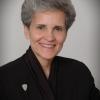GSR: we're sharing this story with you again - Sisters from various communities work together to provide trafficking prevention and rehabilitation services for women who migrate to Italy, usually from Africa. While secular NGOs run shelters in Italy as well, Sr. Eugenia Bonetti emphasizes that, for sisters, working with the women is “their life.” They aren’t simply staff who rotate in and out with each shift, but people who come to know the women deeply.
Yes, you the Great Generation of religious life – to you all I write today. First, I share my most sincere and profound gratitude. Thank you, thank you all. You may not know this, but your lives were the first catechism of my generation – yes, your lives! Your attempts, your quest for meaning and purpose, your questions, your guitar, your commitment to peace and justice, your new liturgies, your folk music, your theology, your poetry, your art. Your lives were indeed our first theology.
"We all flow from one fountain Soul. All are expressions of one Love. God does not appear, and flow out, only from narrow chinks and round bored wells here and there in favored races and places, but . . . ."
I am in the woods on Mount Subasio above Assisi, Italy, at a sacred place of prayer called La Carceri. It’s July 20, 2014. I am on a pilgrimage, thrilled to be praying in this holy place where St. Francis and the early friars spent much time in contemplation. I too am in contemplation on this holy ground. I am pondering what I just heard preached during the Mass, where our Franciscan pilgrimage group gathered around a stone altar underneath some tall trees.
GSR Today - The new year is off to a quiet start in most places except for Ireland, where a story concerning a religious order and a notorious pedophile priest has ruled headlines in recent days.
Sr. Mary Lilly Driciru of the Missionary Sisters of Mary Mother of the Church is the editor of Leadership, Uganda’s oldest and largest Catholic magazine, and the founder of a unique video ministry for illiterate women in rural Uganda.
"Tears flow and so too the anger at loss. Peace seems a question. Can we trust God with our anger and pain?"
This bank doesn’t have a soaring marble lobby or uniformed tellers speaking in hushed tones. This bank is a faded blanket spread beneath a mango tree where a circle of women, hardworking passion fruit farmers, sit with their feet tucked under their colorful skirts, tossing crumpled Ugandan shillings into the center. The accounting system is a well-worn ledger filled with painstakingly neat handwriting and few deposits over $2. Mabel Marunga, the treasurer, flattens each note and carefully enters it into the ledger, a separate page for each woman in the circle.
See for Yourself - On the feast of the Epiphany I didn’t play the organ for Mass anywhere, so I went to another church. My preferred side in that church just happened to be the side where the manger scene was located, eclipsing the side altar.
Several times a week, Sr. Valdete Wilemann watches scores of deported Hondurans walk down the stairs of a U.S. government airplane onto the tarmac of the international airport here. She ushers them into a church-run reception center at the far end of the runway, where the immigrants are welcomed home, offered a quick snack, and have their belts and shoelaces returned. The Scalabrini sister from Brazil has run the Center for Attention to Returned Migrants for 10 years, said she constantly fights seeing her job as routine. "I tell the Lord not to let me grow accustomed to the experience of the migrants






